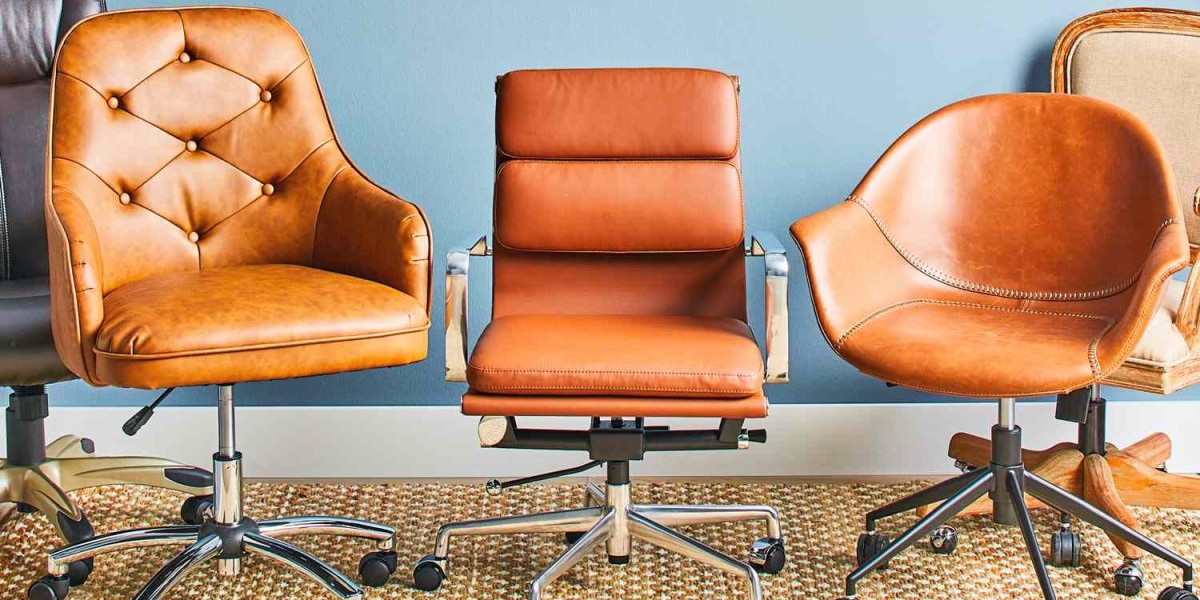When choosing an office chair, one of the most important decisions is the material: leather or mesh. Each has its own benefits and drawbacks, and the best choice depends on your preferences and needs. Here’s a breakdown of both materials to help you decide:
Leather Office Chairs
Pros:
- Aesthetic Appeal: Leather chairs often exude a sense of luxury and professionalism, making them suitable for executive offices or formal workspaces.
- Durability: High-quality leather is durable and can withstand wear and tear better than many other materials. It’s less likely to snag or tear.
- Comfort: Leather chairs typically offer a plush seating experience. They often have thicker padding and can feel more comfortable for long periods.
- Easy to Clean: Leather is generally easy to wipe clean and doesn’t absorb spills as readily as fabric, making it suitable for office environments where drinks or food might be present.
Cons:
- Heat Retention: Leather can trap heat, making it less breathable than mesh. This may lead to discomfort during long sitting sessions, especially in warm climates.
- Cost: Quality leather chairs tend to be more expensive than their mesh counterparts, which might be a consideration for budget-conscious buyers.
- Maintenance: Leather requires regular conditioning to maintain its appearance and prevent cracking or fading over time.
Mesh Office Chairs
Pros:
- Breathability: Mesh material allows for airflow, which helps keep you cool and comfortable during long hours of sitting. This is especially beneficial in warmer environments.
- Lightweight: Mesh chairs tend to be lighter than leather chairs, making them easier to move around your workspace.
- Flexibility: Many mesh chairs feature flexible backrests that conform to your movements, providing dynamic support that can enhance comfort.
- Affordability: Mesh chairs are often more budget-friendly than leather options, providing a range of choices without compromising on ergonomics.
Cons:
- Less Formal Appearance: Mesh chairs may not convey the same level of professionalism or luxury as leather, making them less ideal for formal settings.
- Durability: While many mesh chairs are sturdy, they can be more prone to wear and tear than leather, especially if not made from high-quality materials.
- Support: Some mesh chairs may lack adequate lumbar support, especially if they do not have adjustable features. It’s important to test for proper support before purchasing.
Which Is Best for You?
Consider Leather If:
- You want a chair that looks sophisticated and professional.
- You prefer a softer, more cushioned feel.
- You don’t mind doing occasional maintenance.
- You work in a cooler environment where heat retention isn’t a concern.
Consider Mesh If:
- You work in a warm climate or have temperature sensitivity.
- You prefer a lightweight, breathable option.
- You’re looking for a more budget-friendly chair.
- You value dynamic support and adjustability in your seating.
Conclusion
Both leather and mesh office chairs have their advantages and disadvantages. Your choice should depend on your specific needs, work environment, budget, and personal preferences. Consider trying out both types to see which feels most comfortable for you, as well as how each material fits into your workspace's aesthetic.








